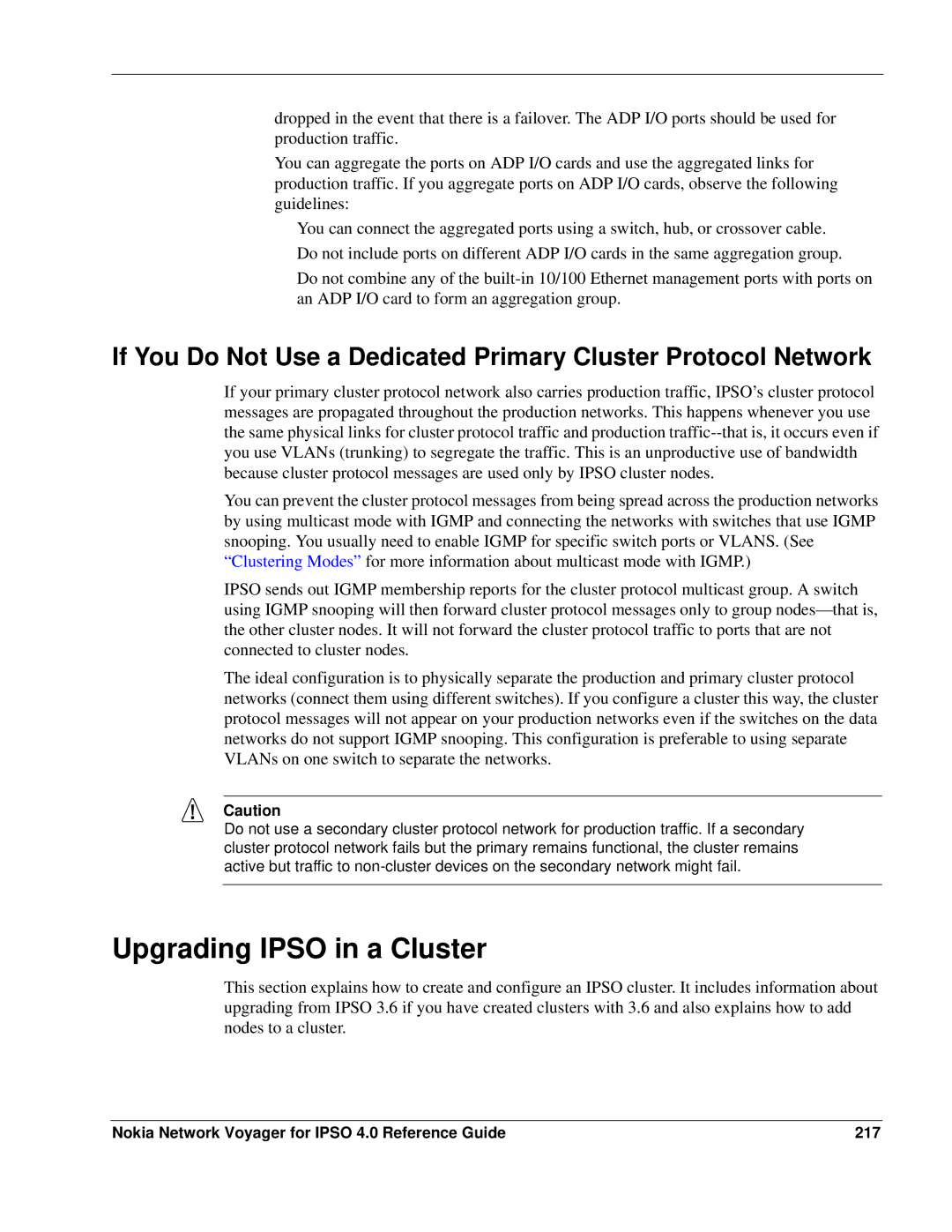
dropped in the event that there is a failover. The ADP I/O ports should be used for production traffic.
You can aggregate the ports on ADP I/O cards and use the aggregated links for production traffic. If you aggregate ports on ADP I/O cards, observe the following guidelines:
You can connect the aggregated ports using a switch, hub, or crossover cable.
Do not include ports on different ADP I/O cards in the same aggregation group.
Do not combine any of the
If You Do Not Use a Dedicated Primary Cluster Protocol Network
If your primary cluster protocol network also carries production traffic, IPSO’s cluster protocol messages are propagated throughout the production networks. This happens whenever you use the same physical links for cluster protocol traffic and production
You can prevent the cluster protocol messages from being spread across the production networks by using multicast mode with IGMP and connecting the networks with switches that use IGMP snooping. You usually need to enable IGMP for specific switch ports or VLANS. (See “Clustering Modes” for more information about multicast mode with IGMP.)
IPSO sends out IGMP membership reports for the cluster protocol multicast group. A switch using IGMP snooping will then forward cluster protocol messages only to group
The ideal configuration is to physically separate the production and primary cluster protocol networks (connect them using different switches). If you configure a cluster this way, the cluster protocol messages will not appear on your production networks even if the switches on the data networks do not support IGMP snooping. This configuration is preferable to using separate VLANs on one switch to separate the networks.
Caution
Do not use a secondary cluster protocol network for production traffic. If a secondary cluster protocol network fails but the primary remains functional, the cluster remains active but traffic to
Upgrading IPSO in a Cluster
This section explains how to create and configure an IPSO cluster. It includes information about upgrading from IPSO 3.6 if you have created clusters with 3.6 and also explains how to add nodes to a cluster.
Nokia Network Voyager for IPSO 4.0 Reference Guide | 217 |
